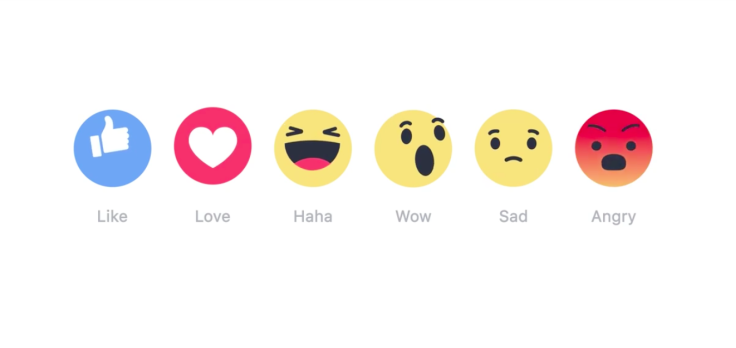Facebook's new emoji-based Reactions see the 'Love' button clicked the most

It seems Facebook users love love, or at least clicking on it since the social media giant's roll-out of five new emoji-based reactions this week in addition to the "Like" button.
CEO Mark Zuckerberg said the "Love" button has been the most popular one by far, followed by the "Wow" and "Angry" reactions. The other two reactions include "Haha" and "Sad".
Users can access the new reactions by hovering their mouse over the “Like” button if they are using a desktop browser, or holding down the “like” button on mobile.
On the day of the worldwide release, Zuckerberg explained in a Facebook post why the company wanted to give users more ways to express themselves.
"Not every moment you want to share is happy," he said. "Sometimes you want to share something sad or frustrating. Our community has been asking for a dislike button for years, but not because people want to tell friends they don't like their posts. People wanted to express empathy and make it comfortable to share a wider range of emotions.
"I've spent a lot of time thinking about the right way to do this with our team. One of my goals was to make it as simple as pressing and holding the Like button."
"Love is the most popular reaction so far, which feels about right to me!"
While most people have adapted to the new Reactions very quickly, some users are lamenting the fact that they now have more options.
"I noticed that this change just causes me to interact less with posts. So if I can't decide what I feel I move on w/o even liking it. Too many choices is not a good thing sometimes," one Facebook user said in response to Zuckerberg's post.
"... now it feels strange to like something, but not "love" it. Another silly thing for people to read into. Not trying to be a downer, just honest UX," said another user.
The emojis had been tested in some countries before they went international, during which the reaction "Yay" was dropped as Facebook found it didn't really have any meaning in certain countries.





















